Destination Marketing needs PRODUCT
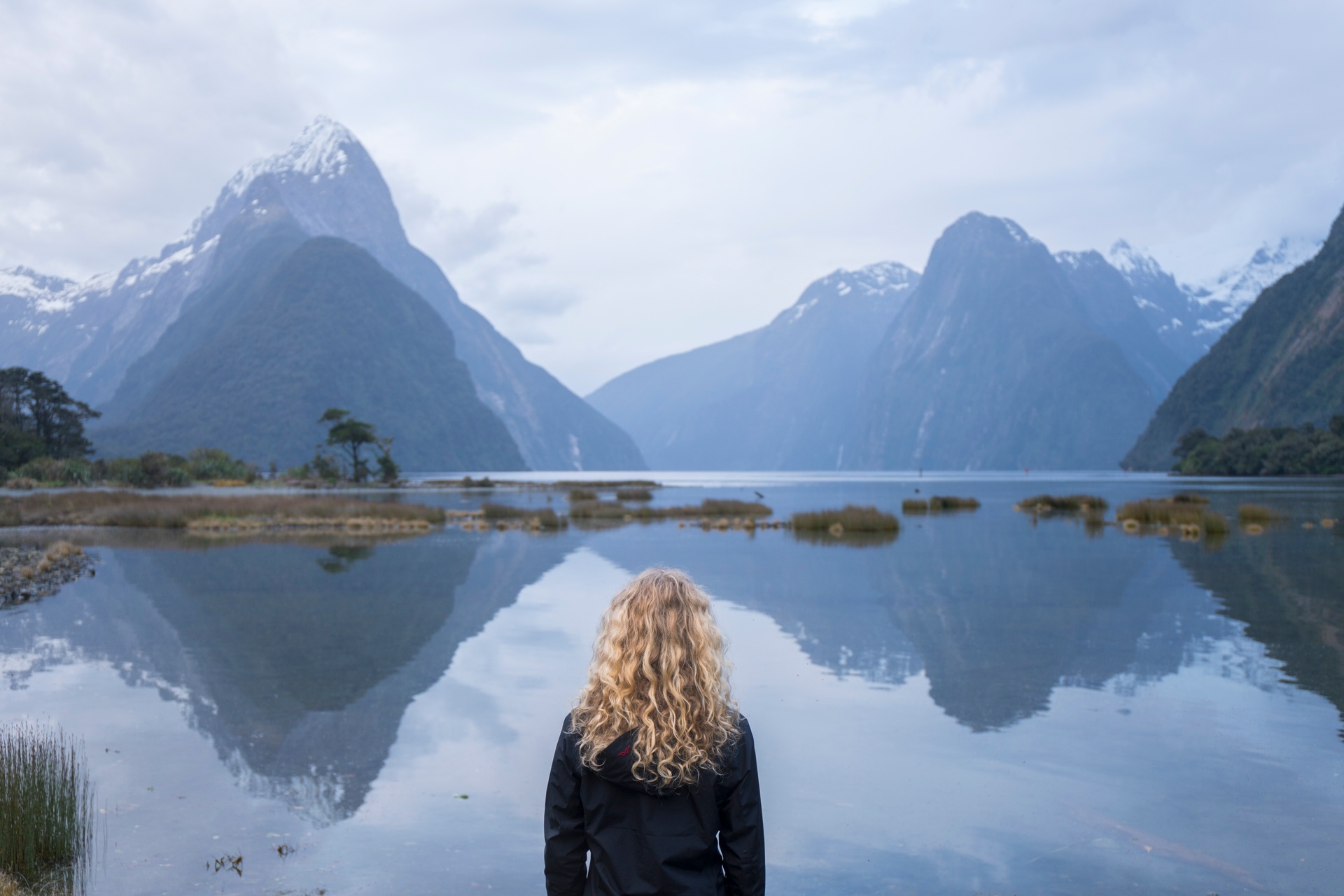
The basic idea for this post came from initially a chat with <em>Vincent Heeringa</em> about strategic challenges for regional destinations, and then subsequently discussions with various folks in the Destination Marketing sector.
Let’s lay it out.
Promoting a region or place with beautiful imagery and destination stories is all well and good. By now you’re all doing that in Destination Marketing land, right?
And for many the argument goes…
The place is "The Product”
However there's a problem with that approach
People want to know or plan what they are going to do when they get there.
- Where to stay?
- What to do?
- Where to eat?
- Where to go?
- Where to study?
- Who to work for?
- When to come?
These are all triggers, to commit to some action.
Without these triggers it’s too easy to delay or avoid the decision altogether, for another time.
Picture yourself living somewhere far away.
Would you commit a serious amount of cash, to blindly travel all the way to some imagined vision of some place far away like New Zealand for 1 or 2 weeks with no ideas of what you will specifically do, no bookings in the hope of having a great experience? (no doubt some adventurous types would- Ed)
Now...
Imagine yourself see an amazing deal or thing that you simply have to experience. Do you bite the bullet and commit to a great airline deal from Air New Zealand available right now, for travel next month knowing, you’ll enjoy a visit to Hobbiton, an outdoor bath at Hot Water Beach, Skiiing at Cadrona near Queenstown, having a go at Bungy in Queenstown, partying at the Winter Festival in Queenstown to the wee hours, Seeing the America’s Cup boats battle it out on The Hauraki Gulf, seeing the All Blacks at Eden Park ….etc
Destinations need prospective visitors to first pay attention, and then to commit!
Product is the trigger and and provided the quality is there, the more the merrier, you need “Products” to pitch in your destination marketing.
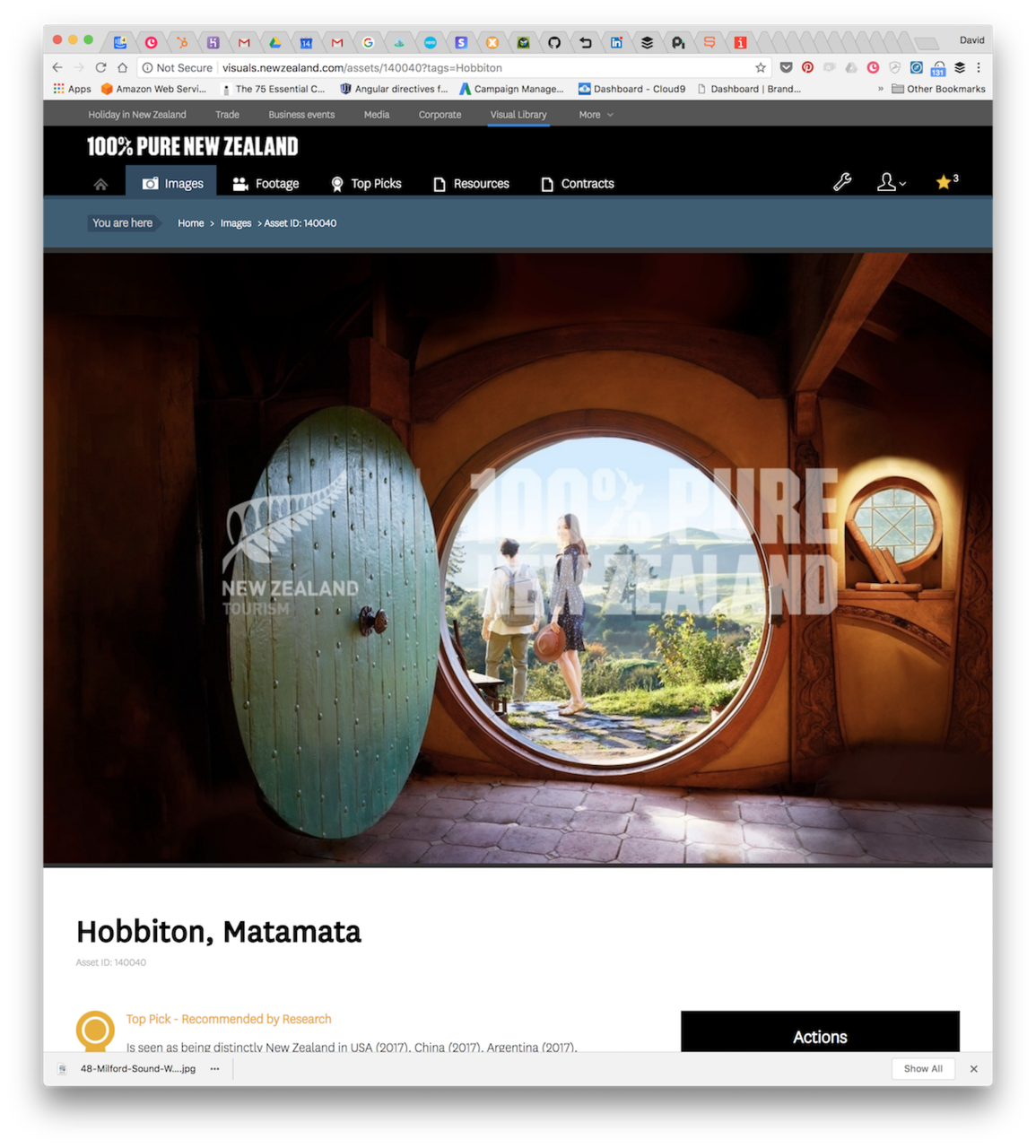
Hobbiton example from Tourism New Zealand's Visual Library
What is ‘Product’ ?
Product is simply something that a visitor can buy.
You can’t buy the Destination, but you can buy various products to enable you to experience the destination.
And a purchase of these products cements the intent to visit with commitment of cash and a calendar entry.
It also enables the prospective visitor to imagine exactly what they will experience rather than something rather vague and fluffy.
‘Product’ includes
- Specific Airline, Train service, Shipping line, Hire car service, Travel deal
- Specific Hotels, Resorts, Homestays, Backpackers
- Specific Restaurants and dining experiences
- Specific Attractions - Museums, Galleries, Historic places, Tourist ventures
- Specific places to go - walking tracks, pilgrimages, beaches, waterfalls, tours.
- Specifics Learning Institutions - Universities, Polytechs, Vocational Teaching Schools,
- Specific Employment opportunities - Employers, Gigs, Volunteering opportunities.
- Specific Events - Concerts, Shows, Food and Wine celebrations, Regional and Season events.
Please note the word “specific”. This is an important distinction. Beautiful images of some unnamed property, walk, attraction etc is lovely but potentially an opportunity gone begging.
Why make the prospective visitor do all the work ? - when you can point them to specific experiences. We’re not talking Advertising here (because that's a commercial transaction between the customer and the commercial venture) - but simply identifying the venture by name or place would be a great place to start. It can be as subtle or as obvious as you like.
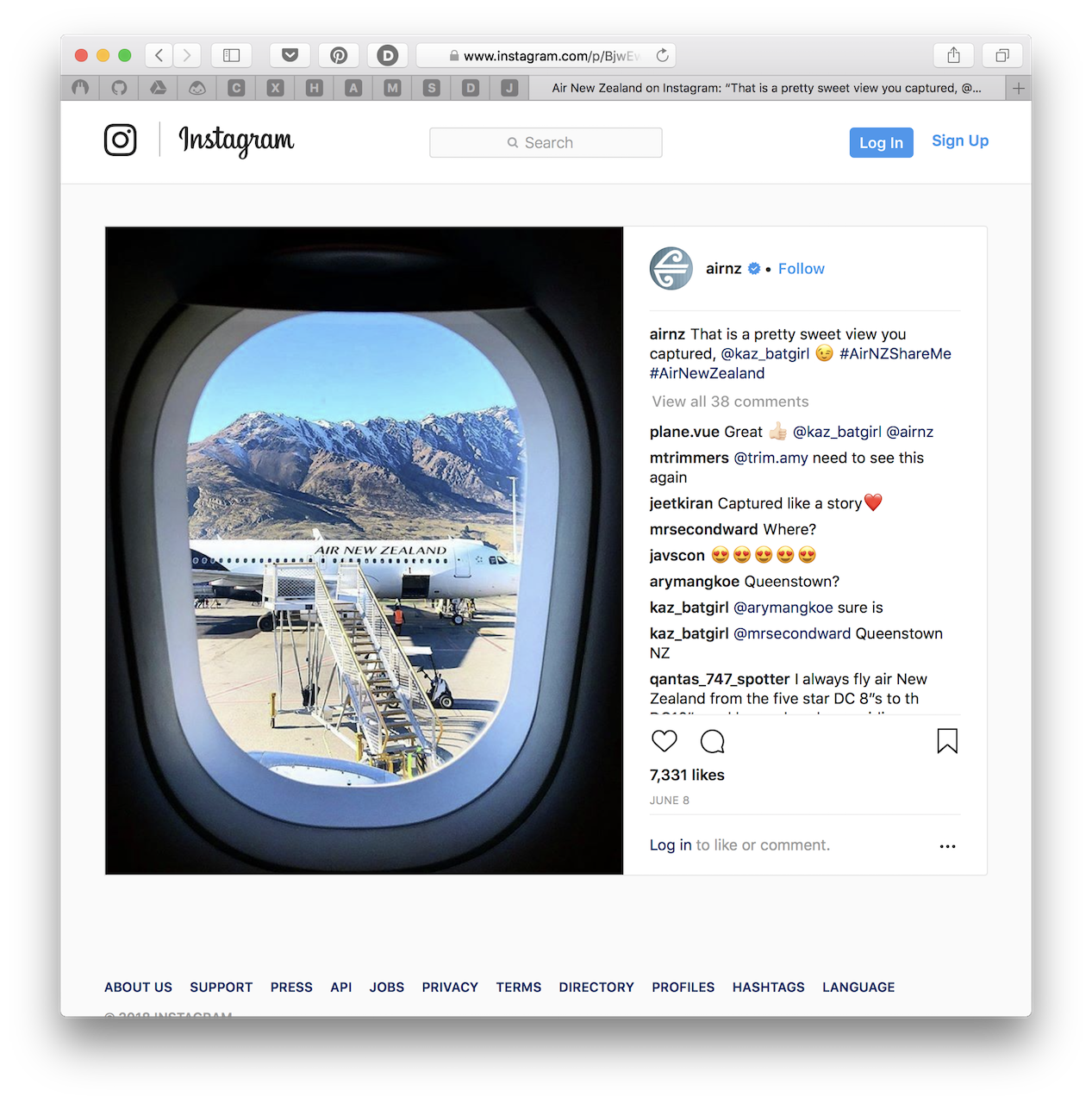 An Air NZ Instagram Post
An Air NZ Instagram Post
The challenge
The challenge for Destination Marketing, Place Branding and Economic Development organizations is that it's often impolitic to single out a commercial venture for promotion - particularly when taxpayers are funding the marketing.
However for Destination Marketing to be effective in an ever more competitive environment - means taking every opportunity to trigger a visit (lets ignore the potential for Overtourism for the moment).
In my opinion, it's now vital to include the promotion of specific “product”, in your marketing strategy and activity.
Productised destination visual story
Curating and sharing a Productised Visual Story, will mean
- engaging with the commercial ventures across your destination,
- working with these ventures to create visual assets and story content,
- agreeing on the appropriate licence agreements
- uploading and distributing to your audiences through your brand kit/visual toolkit.
There may be complaints of favouritism so it’s important that every venture gets an equal opportunity to participate.
You’ll have to set high standards for content quality and authenticity and you may have to lend assistance to some folks to help them get aligned with the brand.
A great example of this in action is Economic Development Agency, NZ Story which does a great job along these lines with their NZ Story workshops: https://nzstory.govt.nz/resource/workshops.
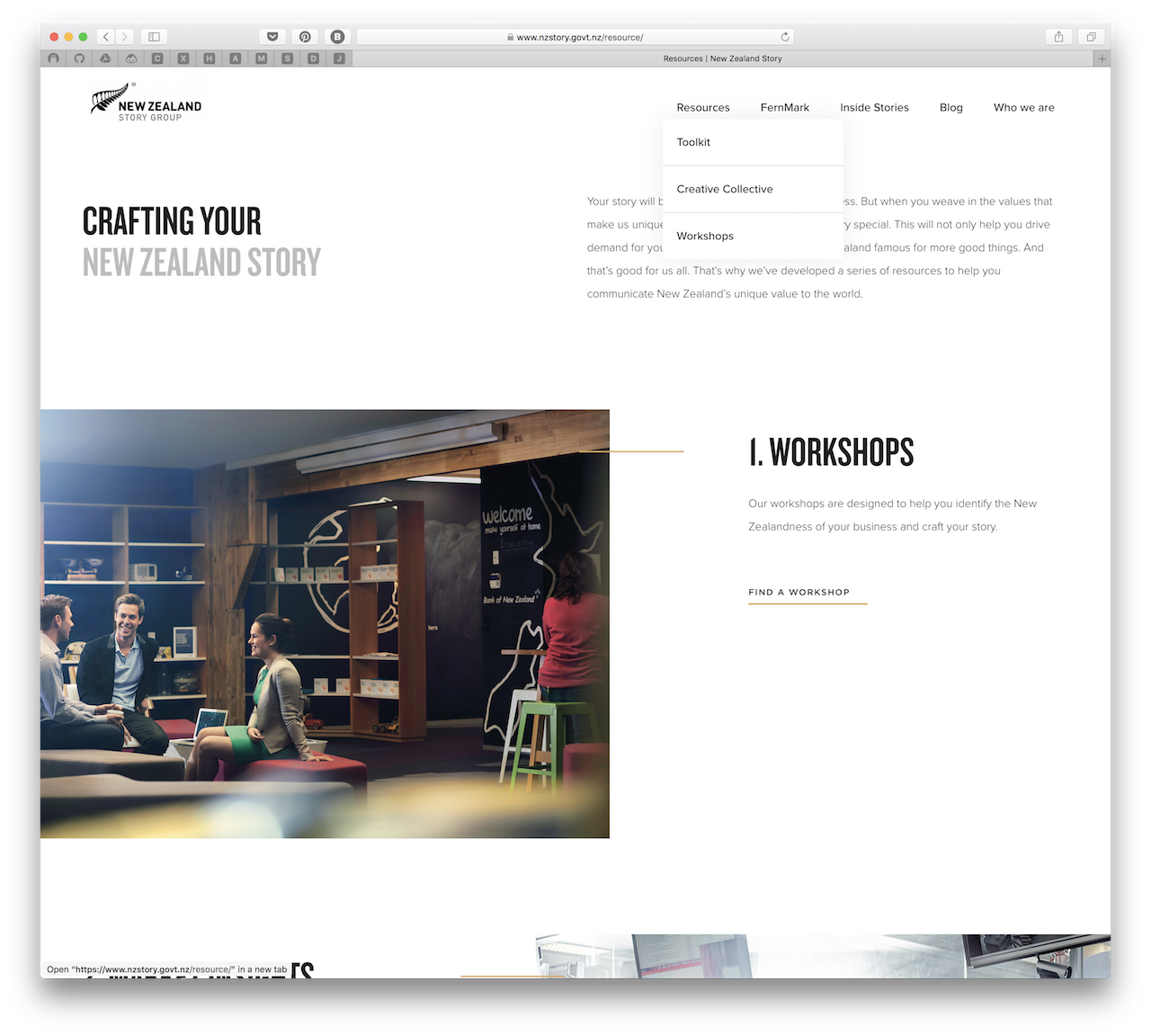
Engage for authenticity
There’s an an incredible opportunity for DMO’s to engage their constituencies and encourage them to develop and share their individual stories, which can then be woven into the wider destination story.
This enriches the destination brand story, and helps keep it authentic and grounded.
And that is exactly what the modern traveller wants - authentic visual stories to backup the brand’s overarching story and promise.
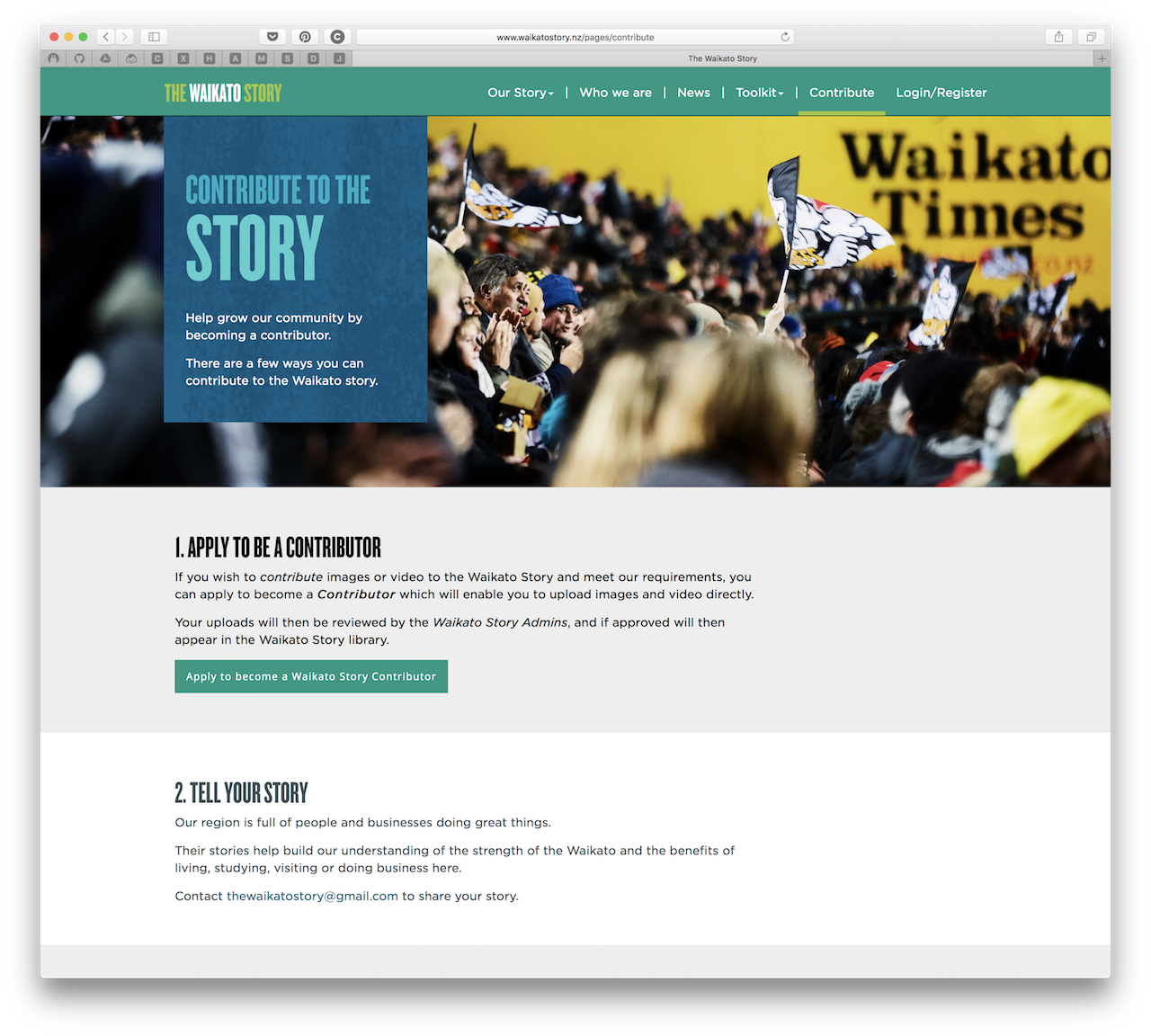
The Waikato Story encourages contributing your own story to be part of the bigger story.
If this is managed well, and commercial ventures feel engaged and energised, a whole lot of new content will flow through the system, at no or limited cost to the DMO/EDO.
It's a virtuous circle for the various participating ventures, as their content is shared more widely, boosting chances of brand engagement for them and the destination - resulting in increased visits and more opportunities for the contributing venture themselves, but also for all other ventures in the destination community. All boats rise with the incoming tide.
As with all Visual Content Marketing - sufficient volume, variety and quality are essential for success.
Key take away
Don’t be afraid of destination product content, instead embrace it, engage your constituency, welcome contributions to the wider story - share with the world and flourish.
Brandkit supports engaging your constituency through building custom community pages, case studies and stories. Our optional Upload widget can enable Contributors to submit content and we have services to help you leverage User Generated Content from Instagram and elsewhere.
Visit Brandkit.io to learn more.
Destination Marketing needs PRODUCT
Promoting a region or place with beautiful imagery and destination stories is all well and good. By now you’re all doing that in Destination Marketing land, right?


